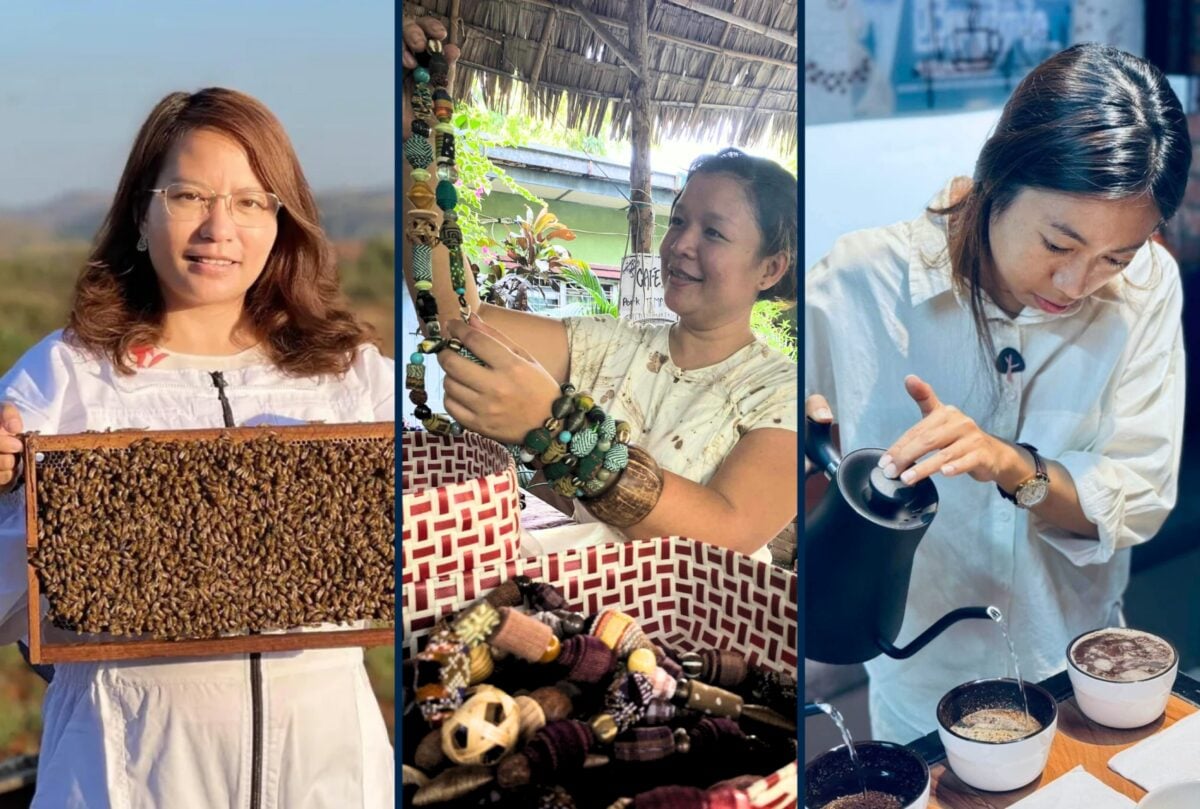Myanmar’s women entrepreneurs are coping with challenges from political turmoil and the global economic downturn while staying committed to sustainable business models. We profile three, but there are many more.
Women entrepreneurs are at the heart of Myanmar’s economy, which is now experiencing a downturn due to political instability and a civil war, high inflation and shrinking customers.
Despite all these challenges, many continue to run their businesses, staying committed to sustainable and environmentally friendly practices, believing that this approach will sustain their businesses in the long run.
Here, we shine a light on three women entrepreneurs who have embraced sustainable practices, such as sourcing coffee beans and honey while providing job opportunities to vulnerable communities and people with disabilities.
These women display the resilience of the people in Myanmar, in the shadow of a war raging across the country which many hope will soon end.
Café Deja Brew: A cozy coffee sanctuary supporting ethnic farmers
The aroma of coffee drifts through the air on 37th Street near Sule Pagoda in central Yangon, where Café Deja Brew is housed in a century-old building.
Its walls are painted a bright yellow inspired by Van Gogh’s paintings, evoking a sense of nostalgia. As well as serving high-quality coffee, this café once provided a sanctuary for local artists and young people before the military staged a coup in 2021.
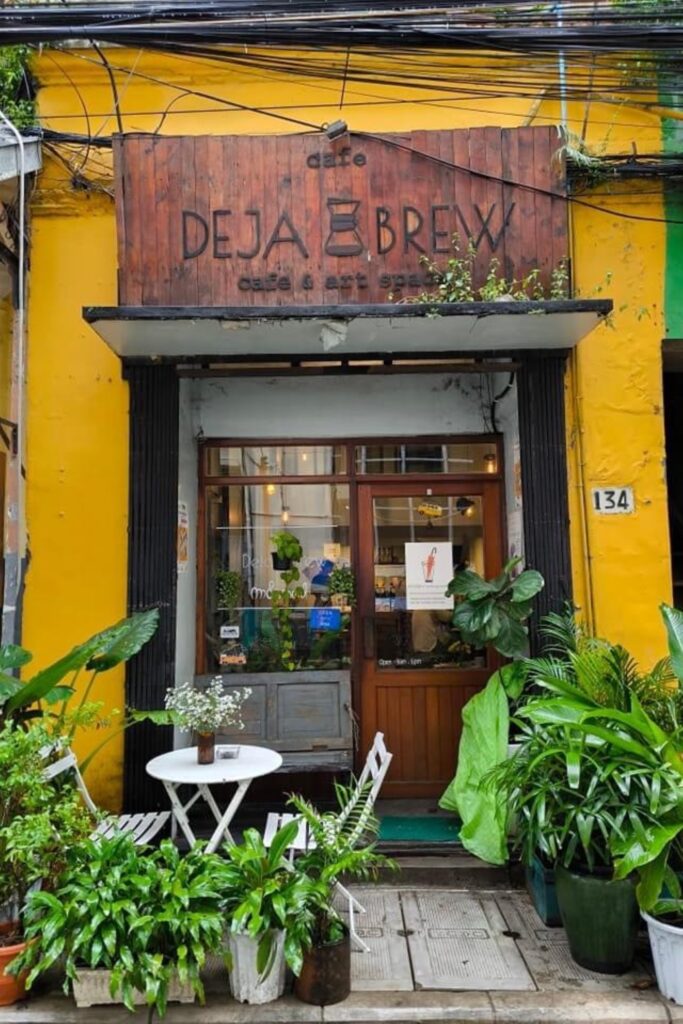
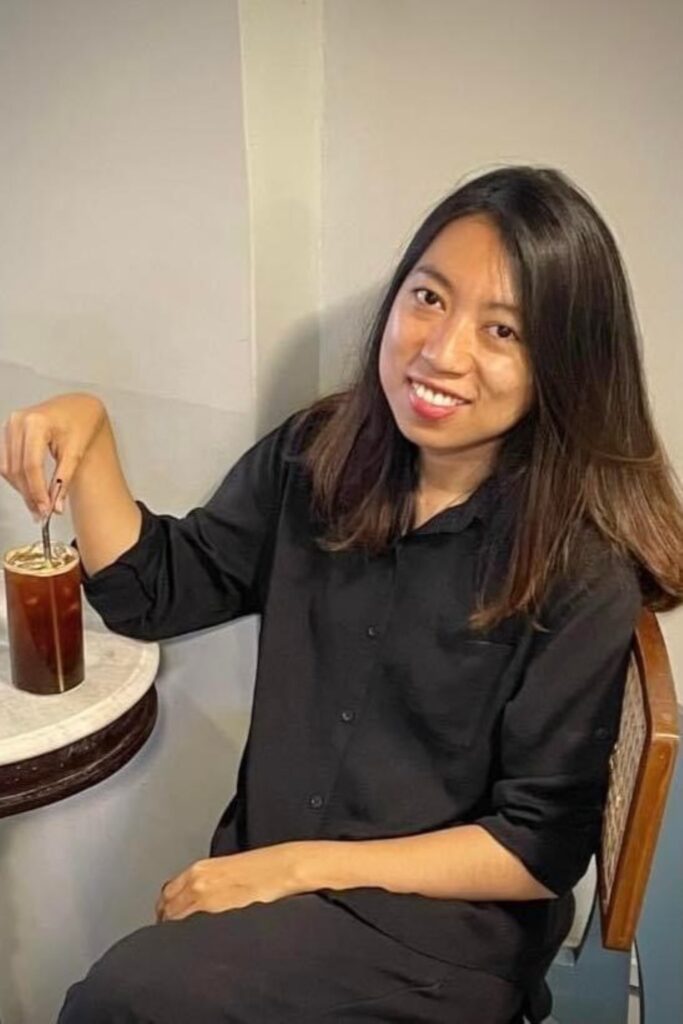
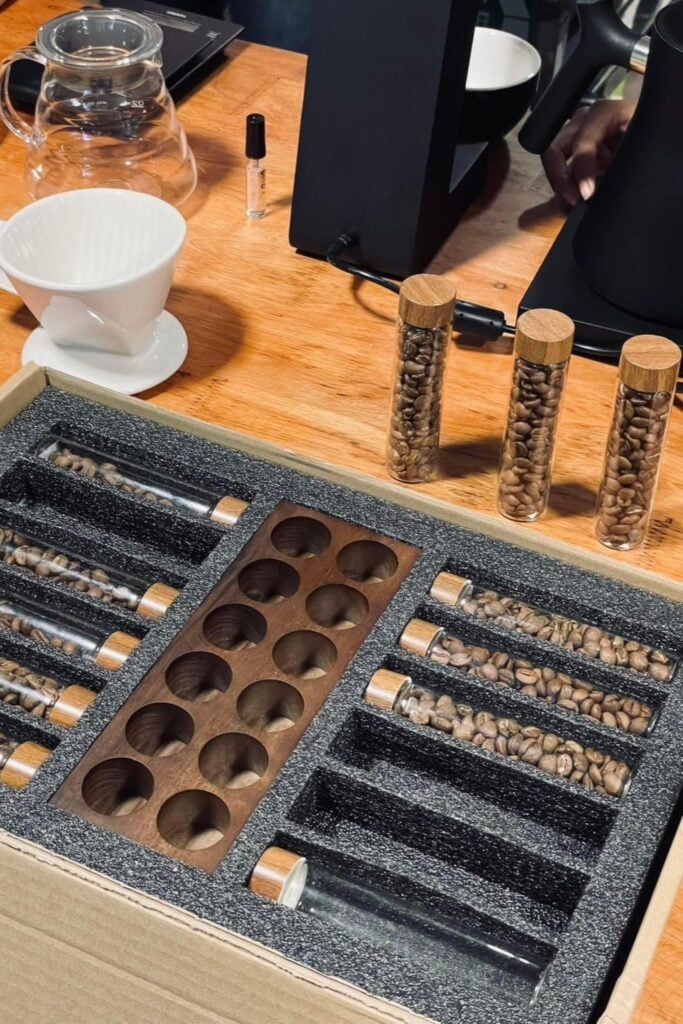
The founder, May Cho, started the café in February 2019, one year after quitting a stable corporate job in Thailand. She describes her office life as “a golden day when something was missing.”
Weekend coffee tastings and café hopping were her way of coping with the loneliness of living away from home, and it fulfilled her soul.
After leaving her job in Thailand, she returned to Myanmar and worked in a roasted coffee shop to gain the knowledge she needed to open her own café – developing the concept of farm-to-cup, which relies on sustainably sourcing coffee beans from ethnic groups in the southern part of Shan State.
The area is well known for its fertile soil and ideal climate for growing premium coffee. Women are also heavily involved in coffee cultivation there and have developed farming techniques that give the coffee a distinctive taste. Purchasing from these women supports their livelihoods.
“I visited each farm to source coffee and establish trust with the ethnic farmers. Myanmar’s coffee beans are outstanding and comparable to those from other regions. We’re unable to compete in the global market only because of the ongoing conflict,” said May.
Her collaboration with local farmers helped her business remain resilient during the Covid-19 pandemic.
By avoiding the logistical disruptions caused by importing coffee beans, she was able to shift her focus to coffee-to-go deliveries and continue operating. Since 60% of her customers were local, she could still sell coffee despite the absence of tourists.
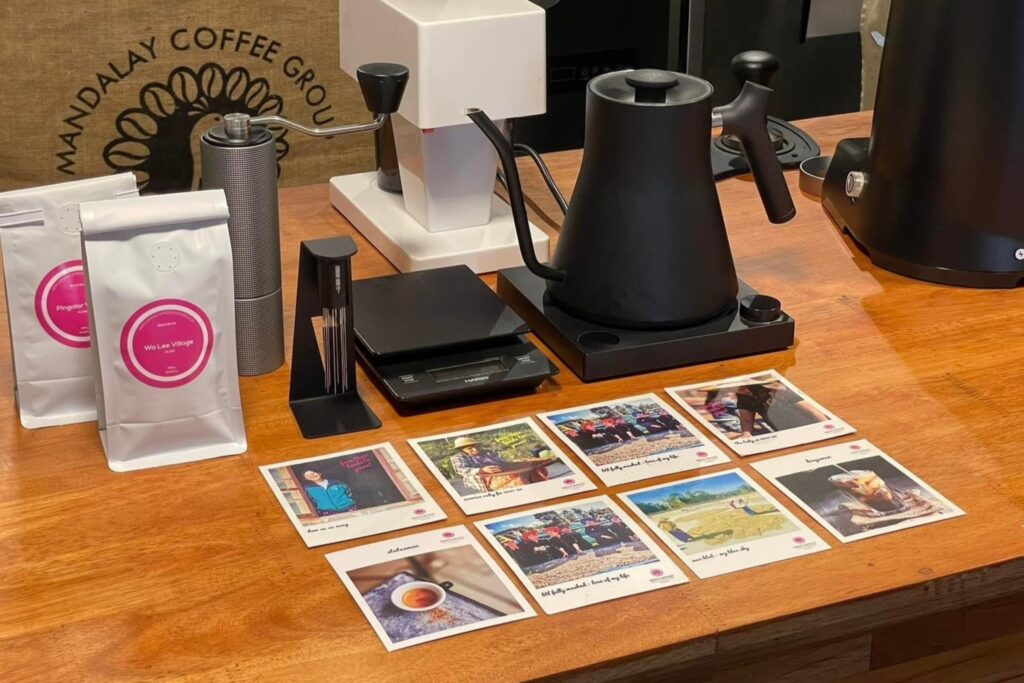
However, now the ongoing unrest in Myanmar has impacted her business. Roads have been blocked by fighting, disrupting the transportation of coffee beans from the farmers.
Frequent power shortages, with less than six hours of electricity available per day, pose another challenge, alongside the emigration of young people fleeing the war.
As a result, her business has slowed. But what keeps May going is hope, which fuels her resilience.
“I both enjoy and suffer a lot while running my café. But I want to stay here with my people. Resilience means suffering together and winning together,” May said.
“As part of the community, I can help people when I’m here. If I’m somewhere else, I’m only living for myself. My value to the community and society would be low.”
Find Café Deja Brew on Instagram and Facebook.
Plan Bee: Premium honey creating jobs for vulnerable communities
Plan Bee is a social enterprise that produces premium-quality honey and bee products such as pure beeswax, beeswax balms and candles.
Founded in 2015 as a vocational training program, the Plan Bee team has equipped more than 500 vulnerable individuals, including women and ethnic minorities in Shan and Kayah State, with beekeeping techniques, while also purchasing honey with fairtrade price from them.
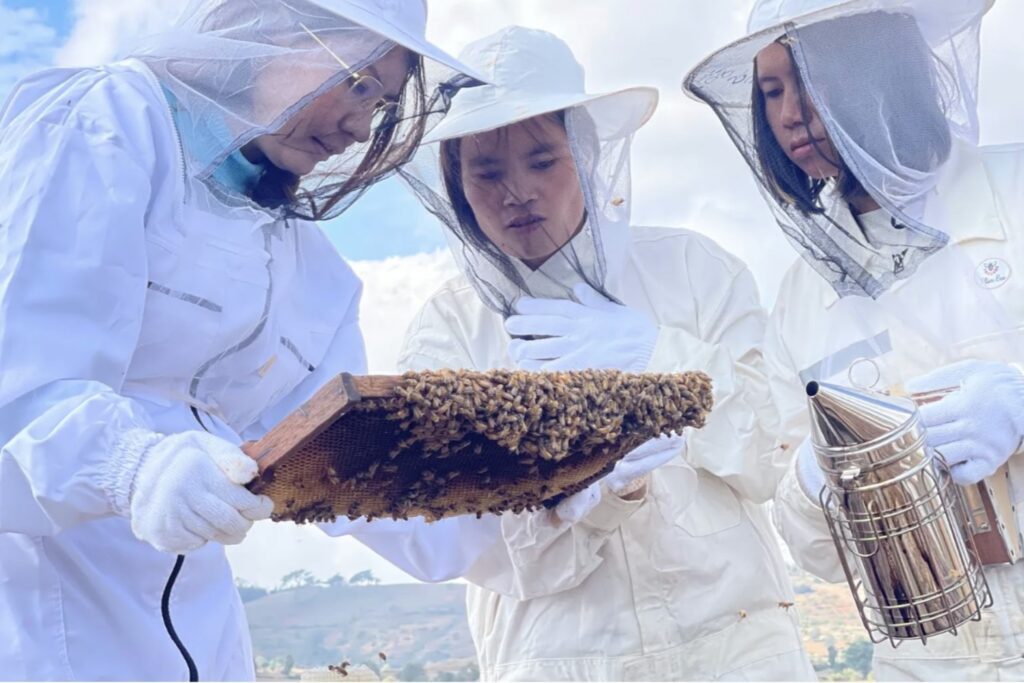
“These people were daily-wage workers with insecure incomes. After they were trained, we provided them with beekeeping equipment, allowing them to have sustainable jobs and a steady yearly income, so they no longer had to worry about their livelihoods,” said Thida Win, the CEO of Plan Bee.
“Meanwhile, we aim to promote Myanmar honey. Compared to other Southeast Asian countries, farmers here use fewer pesticides. A healthier environment and less pollution enable us to produce high-quality honey.”
In 2019, before the arrival of the Covid-19 pandemic, Plan Bee transitioned from a vocational training program to a registered social enterprise and has continued supporting its trained beekeepers.
The organization also promotes women’s leadership, with women leading beekeeping and honey production both in the field and in factories.
However, the pandemic caused a major disruption, reducing production capacity as the number of operating factories dropped from 35 to 12. But Plan Bee continued to support its employees by providing subsidies and small salaries to help them survive the crisis.
In recent years, another challenge has emerged as Myanmar faced high inflation, which increased the cost of raw materials for producing honey and bee products.
“It’s a difficult time now. We are seeking opportunities to expand internationally. We are looking for partners in Thailand and targeting markets in China, Europe and the Middle East,” Thida said.
“Our honey is premium, with HACCP, FDA and Halal certification and high standards. We are ready for international markets.”
HACCP stands for Hazard Analysis and Critical Control Points and FDA for Food and Drug Administration of Myanmar, indicating Plan Bee products are safe for customers.
At present, Plan Bee products are available in more than 500 retail shops across Myanmar. Thida has worked hard to promote her enterprise’s products by showcasing them at fairs and expos in other countries.
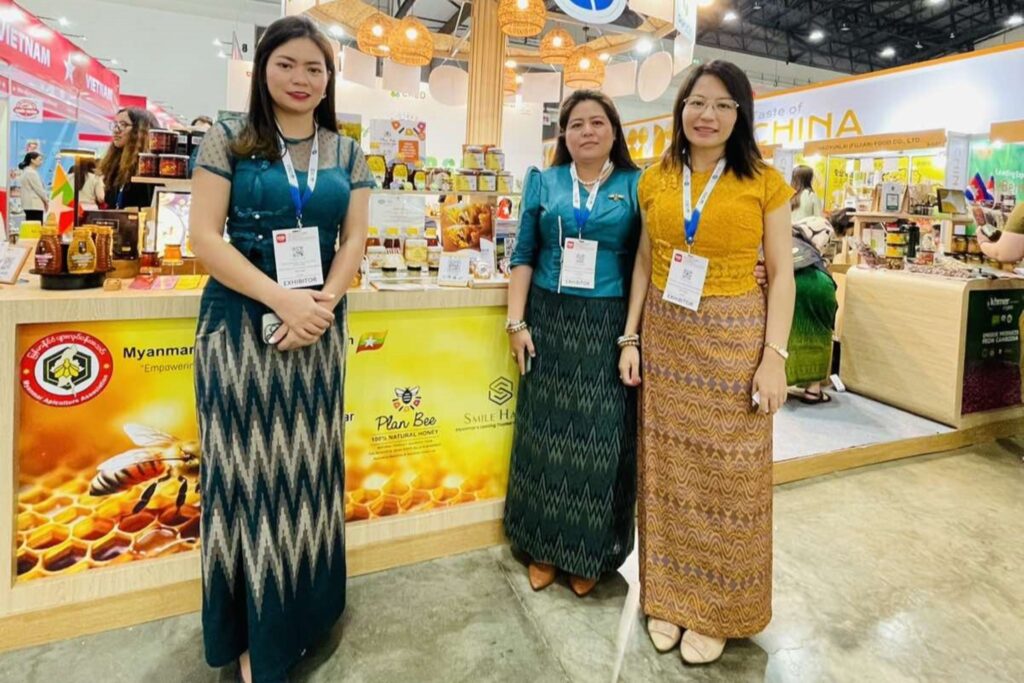
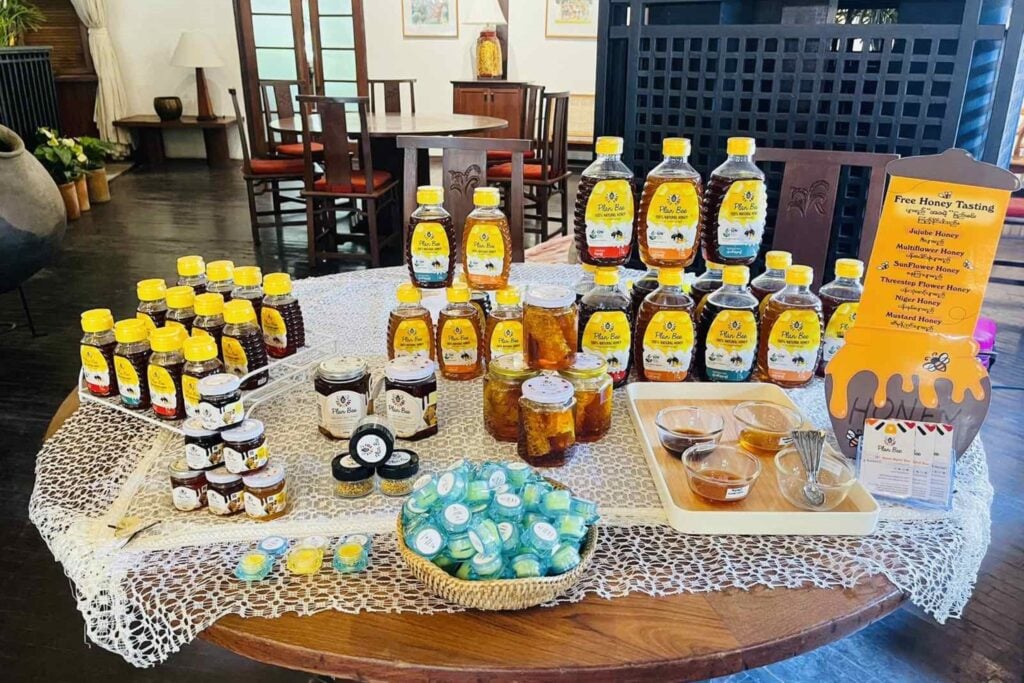
Having invested significantly in her business, she remains committed to growing it even during Myanmar’s most challenging time.
“When you hear our story, it may sound like we had an easy path to this point. But it wasn’t. We faced many challenges before making Plan Bee well known in Myanmar. Now, we are recognized as a trusted brand for our customers.”
Find Plan Bee on Website, Facebook, Instagram and LinkedIn
Amazing Grace Crafts and Workshop: Creating crafts from recycled materials, empowering people with disabilities
Naw Eh Wah has had a passion for handicrafts since childhood, and she loves experimenting with giving new life to discarded items.
Her fondness for recycled materials was evident at her wedding in 2014, where she turned an unused mosquito net into a bridal dress by simply wrapping it around her body. The accessories for this special occasion were beads made from disposed newspapers.
That same year, she founded Amazing Grace Crafts and Workshop, with the mission of producing and promoting eco-friendly handicrafts while providing job opportunities and skills for women, particularly those with disabilities.
Naw trained them to make crafts and jewelry like necklaces, earrings, keychains and baskets – using local and recycled materials such as Myanmar sarongs called longyi, old newspapers and soda cans.
“Our vision is to show how upcycling can turn waste products into beautiful and stylish items,” Naw said from her studio in Yangon.
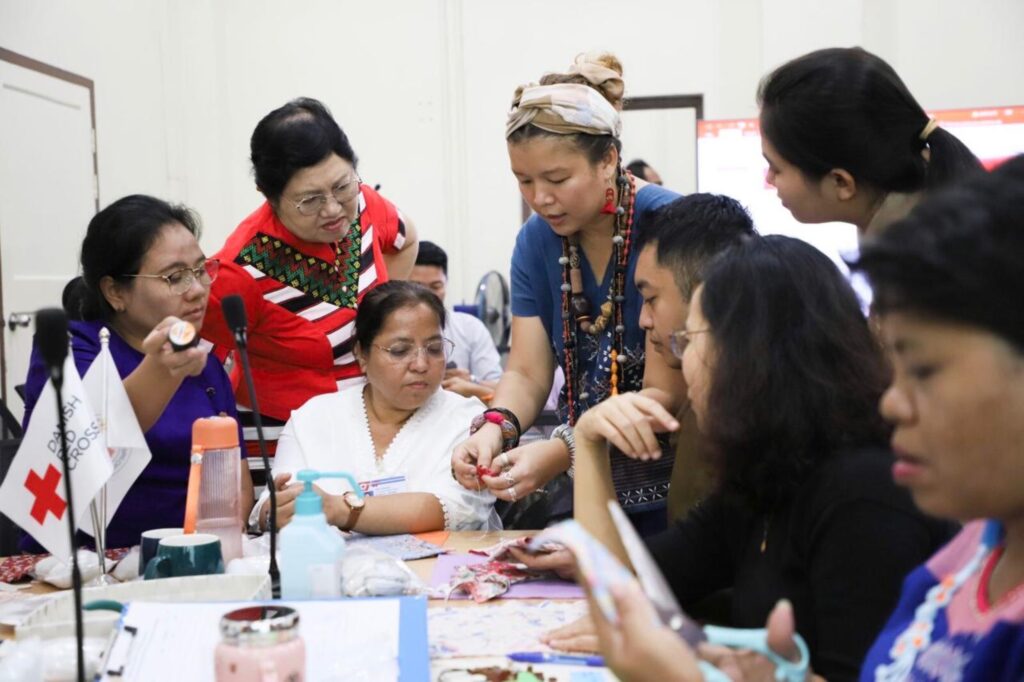
Her entrepreneurial approach was influenced by her background, which involved working with disabled individuals.
Her mother was a doctor treating patients with leprosy, a condition that can cause nerve damage and lead to disabilities. Naw then worked with an organization focused on improving the quality of life for people with disabilities before starting her business.
“I grew up around people with disabilities, so I’m aware of their challenges. At the same time, crafting is my passion, so I combined these two. I began training 10 women, many of whom were disabled, to make crafts and accessories for five years before launching the business with them,” Naw explained.
With her shop and studio established in Yangon, Naw’s work has gained recognition from companies and non-profit organizations, who have engaged her in corporate social responsibility projects, even involving her in international fashion shows where she created dresses and accessories from recycled materials.
Her enterprise has attracted many who donate old newspapers and unused fabrics for her to transform into new pieces.
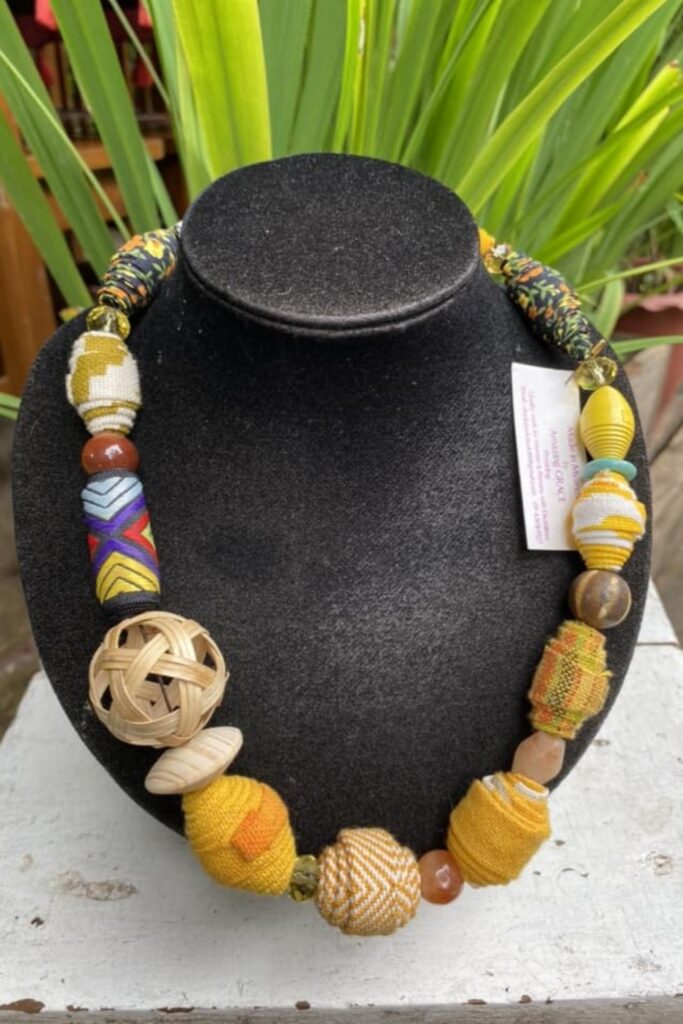
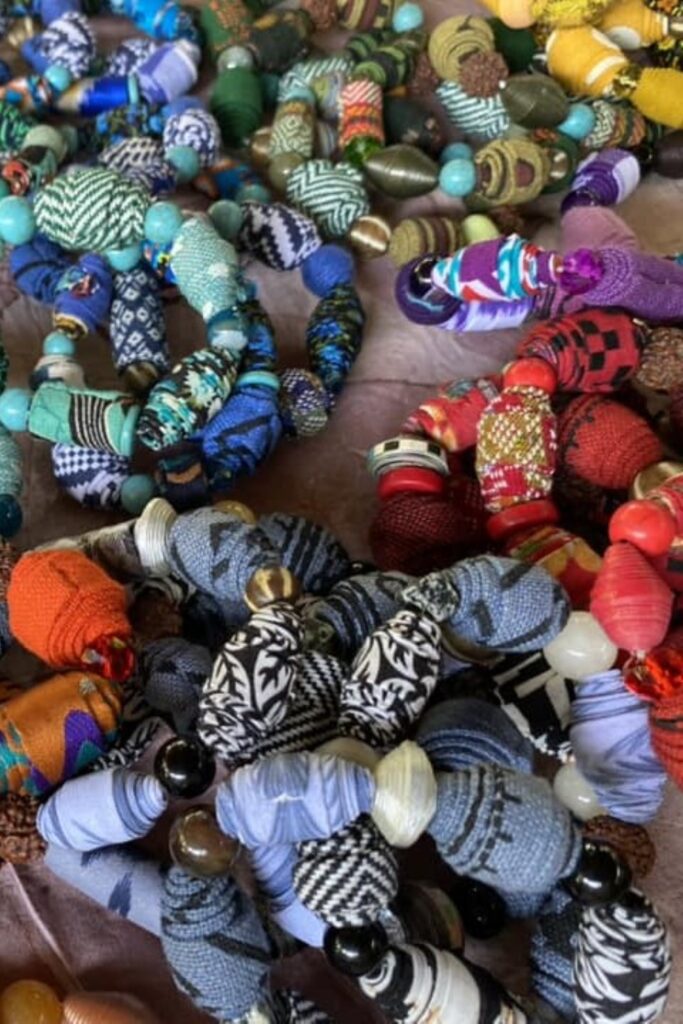
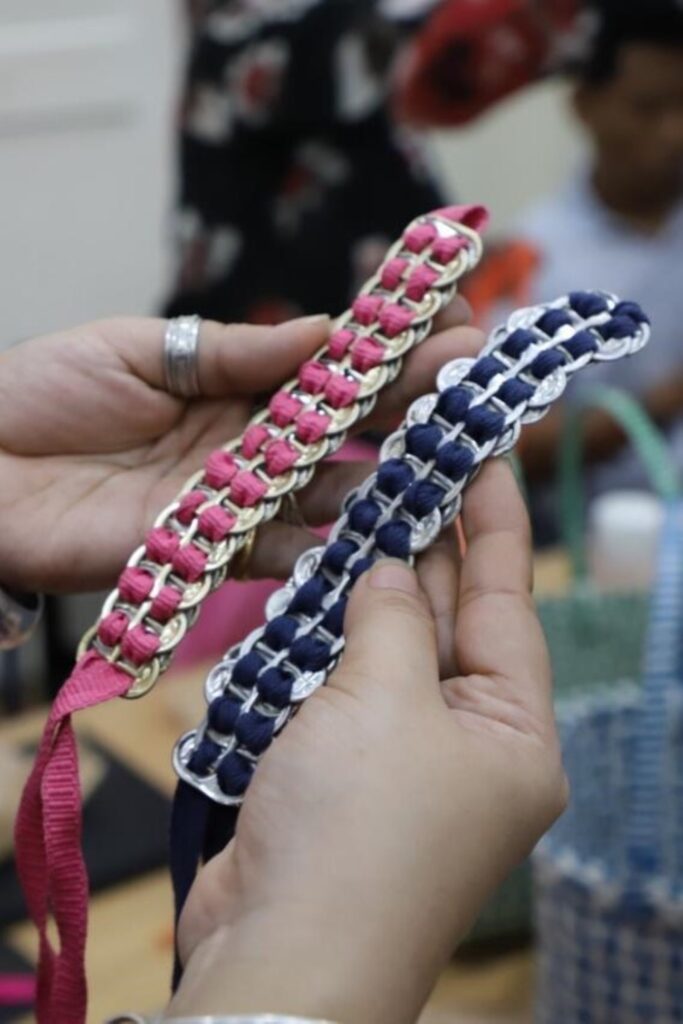
However, the recent political turmoil has brought significant challenges. Naw has lost most of her customers, many of them foreigners who left the country.
This came after the Covid-19 pandemic forced her to shut down her shop intermittently for nearly two years. Like many other businesses, high inflation and power shortages have disrupted her production.
In response, Naw adapted her business model by opening a restaurant in 2022, serving local breakfast and snacks while selling souvenirs and handicrafts alongside.
Fortunately, her workshop on crafting with recycled materials has continued. Her team offers paid workshops for those interested in learning the craft, and free workshops for orphanages and patients with mental health issues and Down Syndrome.
But Naw’s vision doesn’t stop there. Despite the difficulties, she plans to establish a community craft center on her property, where people can gather, share their skills and exhibit their works.
“There’s a Burmese saying, ‘You have to try hard now so that when the good times come, you’re ready to grab the opportunity,’” she said. “Crafting is my passion, and I will continue no matter what.”
Find Amazing Graze Crafts and Workshop on Website and Facebook.


